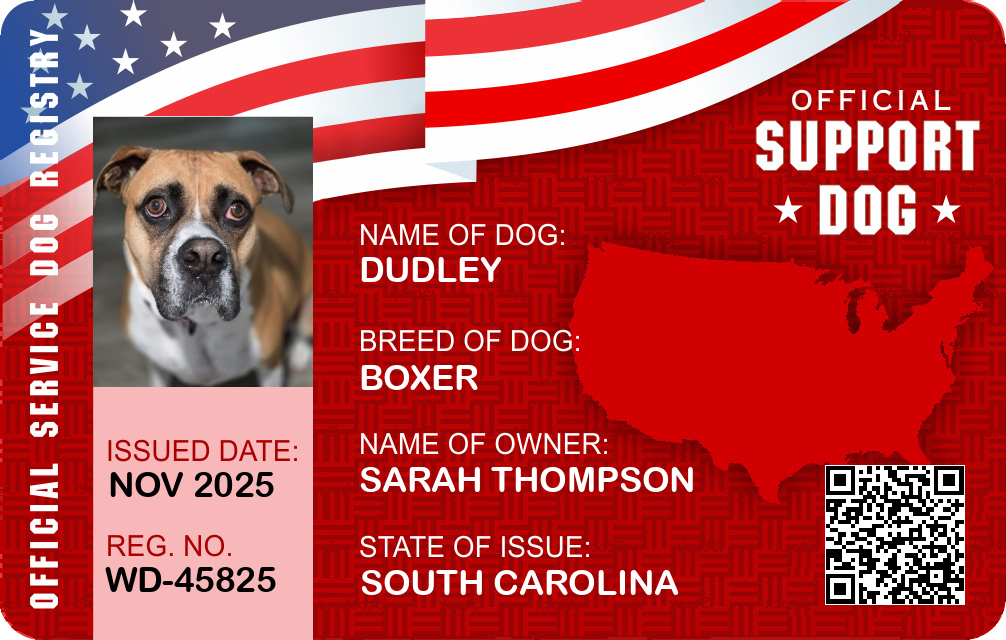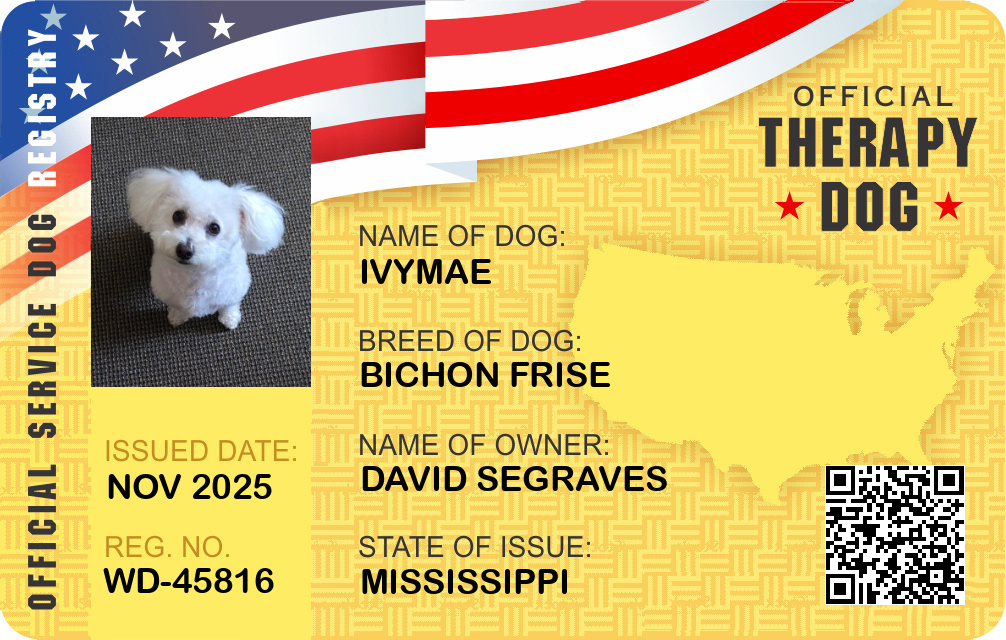Connecticut Emotional Support Animal Laws

Overview of ESAs and Legal Definitions in Connecticut
What is an Emotional Support Animal?
An Emotional Support Animal (ESA) is a companion animal that provides comfort and emotional support to individuals with mental or emotional disabilities. Unlike service animals, which are trained to perform specific tasks related to a person's disability, ESAs do not require specialized training. The primary role of an ESA is to offer therapeutic benefits to its owner through companionship and emotional stability. In Connecticut, as in other states, the recognition of ESAs is often tied to federal laws rather than specific state legislation.
How ESAs Differ from Service Animals
The key distinction between ESAs and service animals lies in their training and the roles they fulfill. Service animals, typically dogs, are individually trained to perform tasks that directly assist a person with physical, sensory, psychiatric, intellectual, or other mental disabilities. For instance, a guide dog helping a visually impaired person is a service animal. In contrast, ESAs do not require any specific training and merely offer emotional support. Understanding these differences is crucial, as it affects the legal rights and accommodations granted to each category in Connecticut and across the United States.
Key Federal Laws Affecting ESAs (e.g., FHA, ACAA)
Federal laws play a significant role in defining the scope and protection for ESAs. The Fair Housing Act (FHA) is particularly relevant, as it mandates that individuals with disabilities can have an ESA in housing situations, even if a property has a "no pets" policy. The Air Carrier Access Act (ACAA) previously allowed ESAs to travel in the cabin of aircraft but was revised in 2020 to provide such rights exclusively to service animals, removing ESAs from this category. These federal laws set the groundwork within which state-specific laws, including those in Connecticut, operate.
State-Specific ESA Laws in Connecticut
Housing Rights and Responsibilities
Under the FHA, Connecticut residents with ESAs are entitled to reasonable accommodations in housing environments. Landlords must offer exceptions to "no pets" policies for tenants with valid ESA documentation, and they cannot impose pet fees or deposits for ESAs. However, the animal must not pose a direct threat to the health or safety of others or cause significant property damage. Tenants are responsible for the care and behavior of their ESA, ensuring that it does not violate reasonable standards of health and safety.
Public Access and Accommodation
Connecticut does not have specific statutes that extend public access rights to ESAs beyond what is federally mandated. Unlike service animals, ESAs are not granted the right to accompany their owners into public establishments or facilities that do not allow pets. This includes restaurants, stores, and other public venues. Owners should be prepared to respect establishment policies regarding pet entry and clarify the distinction between an ESA and a service animal if questioned.
Transportation and Travel Rules
With changes to the ACAA, airlines are no longer required to accommodate ESAs in the cabin. Those traveling with ESAs should check with specific airline policies well in advance of travel, as some may allow ESAs under their pet policies, though typically with size and breed restrictions, as well as applicable fees. Ground transportation laws in Connecticut regarding ESAs follow general public access guidelines, which typically do not permit ESAs on public transport unless they fit within pet-friendly guidelines.
Employment and Workplace Considerations
Connecticut workplaces are not obligated to accommodate ESAs under the Americans with Disabilities Act (ADA), which applies to service animals only. However, employees seeking to bring an ESA into their workplace may request accommodations through their employer’s human resources department. This does not guarantee approval, but reasonable accommodations may be provided depending on the employee’s documented needs and the ability to accommodate without undue hardship for the employer.
Documentation, Requirements, and Processes in Connecticut
ESA Letters and Who Can Issue Them
For Connecticut residents, an ESA letter is a critical document to establish eligibility for ESA-related accommodations. This letter must be written by a licensed mental health professional (LMHP), confirming that the individual has a disability and that the ESA provides necessary emotional support. Eligible professionals include psychologists, psychiatrists, and social workers, among others. The letter should be on official letterhead and incl
Register Your Dog Instantly
ude the professional’s contact information, licensing details, and signature.Registration, Certifications, and Common Misconceptions
Registrations or certifications from online ESA services do not have any formal legal standing in Connecticut or federally. These documents are often marketed as necessary, but they are not required by law. The only legitimate documentation is the ESA letter from a licensed mental health professional. Owners should be wary of scams that offer “fast-track” ESA certifications without proper consultation as these can lead to legal complications or invalid accommodations.
Landlord, Business, and Provider Verification Rules
Landlords and property managers have the right to request verification of an ESA through an ESA letter but cannot demand disclosure of specific medical details or the nature of an individual’s disability. Similarly, businesses are not entitled to request documentation or proof for ESA owners entering pet-friendly premises, as ESAs do not have public access rights. Verification is primarily needed in housing contexts, where fair housing laws apply.
Rights, Limitations, and Legal Risks
Rights ESA Owners Have in Connecticut
In Connecticut, ESA rights largely center around housing accommodations. Individuals with legitimate ESA documentation can expect their landlords to provide reasonable accommodation without additional pet fees. This right is protected under federal law, specifically the FHA.
Limits on ESA Protections and Common Restrictions
ESA protections do not extend to public access or commercial air travel rights beyond the considerations mentioned. Owners should be aware that ESAs are generally treated as pets in public, and establishments not allowing pets are not legally required to admit ESAs. Misrepresentation of an ESA as a service animal can lead to denied access and potential penalties.
Penalties for Fraud or Misrepresentation
Misrepresenting an animal as a service animal or falsifying ESA documentation is not only unethical but also potentially illegal. Although Connecticut lacks specific misrepresentation statutes, consequences can include eviction, fines, and the revocation of ESA rights. It underscores the importance of maintaining integrity when seeking ESA accommodations.
Practical Guidance for ESA Owners in Connecticut
How to Qualify for an ESA Legitimately
To qualify for an ESA in Connecticut, individuals should seek a legitimate diagnosis and recommendation from a licensed mental health professional. Building a relationship with an LMHP and discussing mental health needs is essential to obtain a valid ESA letter. Avoid fast, impersonal online services that claim to offer immediate ESA documentation for a fee.
How to Talk to Landlords, Airlines, and Employers
When discussing ESA accommodations with landlords or employers, clarity and professionalism are key. Provide a valid ESA letter and express willingness to discuss reasonable accommodations. Approach these conversations understanding the limitations and rights specific to ESAs, and be prepared to explain your needs without expecting rights akin to those of service animals.
Tips for Avoiding Scams and Legal Problems
- Verify the credibility of any online service claiming to provide ESA letters or certifications.
- Engage with a licensed mental health professional who can assess your needs properly.
- Familiarize yourself with state-specific and federal laws to distinguish between legally sound and fraudulent claims.
- Remain forthcoming and honest about the role of your ESA and its qualifications.
Summary of ESA Laws in Connecticut
- ESAs primarily offer emotional support and are not trained to perform tasks.
- Housing accommodations are protected under the FHA, allowing ESAs in rental units.
- ESAs do not have the same public access rights as service animals and are not guaranteed access to public settings or air travel as per ADA and ACAA regulations.
- Valid ESA documentation must come from a licensed mental health professional.
- Misrepresentation of an ESA as a service animal can result in penalties.
- Owners should prioritize open communication with landlords and employers and seek legitimate avenues for acquiring ESA status to avoid legal issues.
By maintaining an understanding of both state and federal laws, ESA owners in Connecticut can ensure they secure appropriate accommodations without legal risk or misunderstandings.











